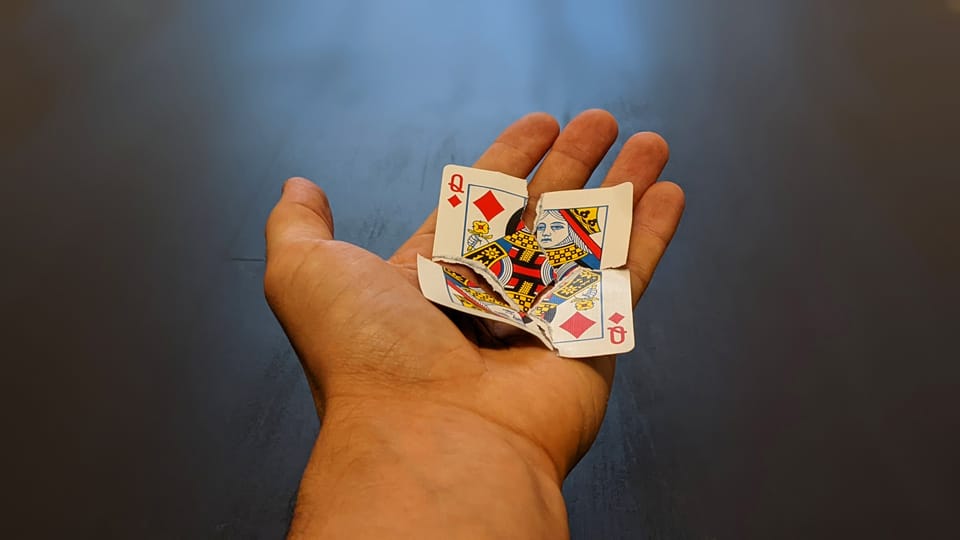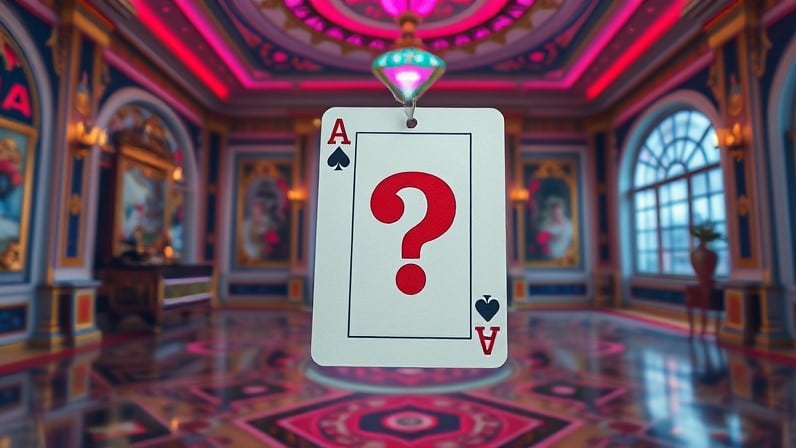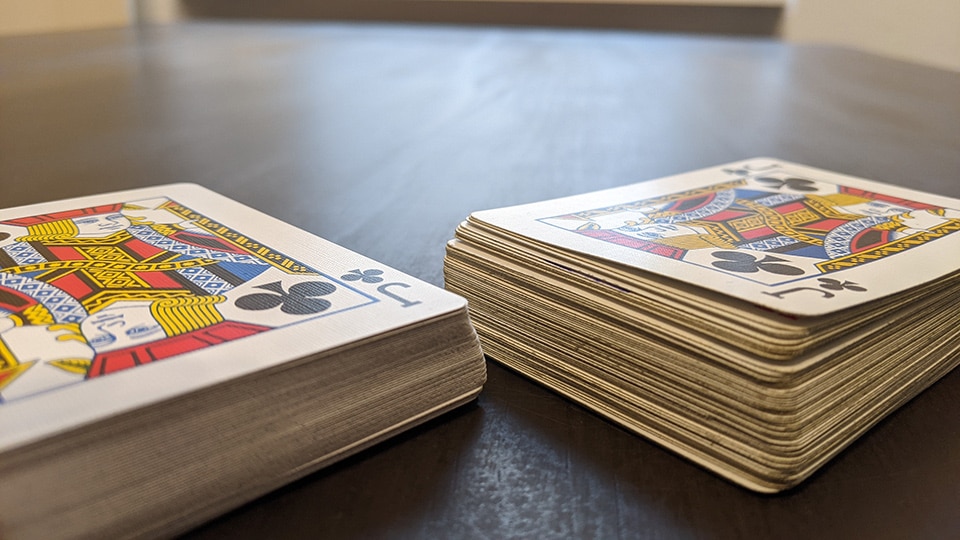Why Do Magicians Not Reveal Their Secrets?
Ever watched an incredible magic trick that blew your mind away? More often than not, the next thing you wonder is, “How on Earth did they do it?” But the truth is, magicians remain silent about their tricks, and for good reason. If you find yourself wondering why magicians keep secrets, you’ve landed in the right spot. In this article, we’ll explore why magicians are traditionally forbidden from sharing their secrets—and why more magicians than ever are breaking this rule.
Why do Magicians Guard Their Tricks?
Magicians keep secrets because their ability to keep up the mystery makes their profession so popular.
Perhaps some of the world’s highest-paid magicians started out as curious kids who figured out how to pass on their curiosity to the next generation. Yet, their success lies in how well they guard their methods. So, here’s why magicians keep secrets:

1. No Secret - No Magic
Magicians thrive on the element of surprise and mystery. If everyone already knew how the trick was done, nobody would be interested in the first place. Expert magicians pique the audience’s interest and often make them question their very own thought processes. Their brains fail to comprehend what’s right before their eyes, but that’s where the real fun begins, right?
There’s no joy in uncovering the secret. In most cases, the method behind a magic trick is remarkably simple. Sometimes, it’s so simple that it can feel underwhelming or even disappointing. Discovering the secret can strip away the wonder and excitement that the trick originally created. The magician’s goal is to inspire joy and amazement, not to diminish it. For this reason, if someone is merely curious about how a trick works, no true magician will spoil the magic for them.
2. The Endless Hours Behind Every Magical Moment
Another big reason why magicians don’t reveal tricks is that behind each trick, there are hours (or years) of practice. Magicians spend a significant amount of time perfecting their techniques. Their goal is to operate in a way that keeps their actions completely undiscoverable.
Now, revealing their secrets means skipping all the hard work and getting straight to the crux. This isn’t in the interest of the magician, right?
3. It’s Their Career
Additionally, magicians keep secrets because it’s more than just a few tricks; it’s a full-fledged career for most of them. Their tricks are their trade. While this might sound a bit selfish, why would they give away their secrets for free? They have little reason to proceed, given their livelihood depends on it.
Keeping their secrets is what helps them ‘wow’ the audiences and make a living out of magic.
4. It’s Not Their Right
Many magicians acquire their knowledge from other magicians, whether through personal instruction, books, or videos that these magicians have sold. Because they didn’t create the methods or tricks themselves, they have no right to publish or reveal them publicly.
However, it’s a completely different matter when a magician invents a new trick entirely on their own. In that case, they have every right to decide what to do with it. They can choose to share it openly, keep it a secret, or sell it to other magicians for profit. Selling them is the most common practice when it comes to newly invented tricks.

5. Protecting the Magician Code of Ethics
When in the field, nobody wants to let out the secret of magicians. While it’s partly about protecting the tricks, it’s also about respecting the craft and the magician’s code of ethics.
In the past, the secrets were often passed down like family recipes. It was difficult to find a magician willing to take you into the trade and share their secrets with you. Giving them away casually is a disregard for the legacy itself. This means that protecting magic illusions is their way of respecting the magicians that came before them.
How the Internet Is Breaking the Magicians' Code and why that might be a good thing
However, times have changed, and it’s now much easier to uncover the secrets of magic. There are countless tutorials available on platforms like YouTube, and magicians themselves often sell their tricks in the form of books or videos through online magic shops to paying customers.
In my opinion, this is a positive development, as it has opened the field of magic to everyone. In fact, this availability of knowledge played a key role in my own journey to becoming a magician. Coming from a family with no background in magic or the arts, I would never have had the opportunity to learn these secrets without the internet.
Additionally, this openness has accelerated the process of invention. Magicians can now more easily connect with others to discuss their ideas and methods, often collaborating and supporting one another in the pursuit of their next great effect.
I believe that this modern accessibility to knowledge has encouraged many more people to take up magic as a hobby, sparking their interest and creativity. This has not only grown the magic community but also increased its influence and impact on society as a whole.
When Do Magicians Break the Rules and Share Their Secrets?
These days, magicians are not as strict about keeping their secrets as they once were. Many of the methods behind classic tricks have already been leaked and are now widely available on video platforms like YouTube and across the internet. As a result, there’s little reason to go to great lengths to protect secrets that are not secrets anymore. Anyone with a bit of curiosity can easily do the research and often find exactly what they’re looking for.
Even renowned magicians like Penn and Teller have shared the secrets behind some classic magic effects in their TV shows—though they usually add a surprising twist to keep the performance engaging. Ultimately, it’s about finding the right balance between preserving the mystery and adapting to modern accessibility.
Why I Don’t Share My Methods: And When I Make an Exception
When I’m booked as a magician at an event, I’m occasionally asked about the methods I use. I always politely refuse to reveal them.
That said, there are times when I do share my knowledge, such as during magic workshops for team-building events.
It may seem contradictory, but in truth, it isn’t. I, too, learned my first magic trick from someone who was kind enough to share their knowledge with me. When someone is genuinely willing to invest their time and effort into learning a trick—not just out of curiosity, but with the intention of performing it themselves and spreading the joy of magic—I see that as a valid reason to share my expertise. Teaching magic to those who want to bring happiness to others aligns with the spirit of magic itself, and I’m always happy to pass on the craft to those who are truly passionate about it.
Conclusion: The Magic of Secrets
Magic thrives on the wonder it creates, and that wonder is built on secrets. By keeping their methods hidden, magicians preserve the mystery, awe, and joy that make their craft so enchanting. While the modern era has made it easier than ever to uncover these secrets, it has also expanded the reach of magic, inviting new generations to discover and develop the art.
The balance lies in respecting the traditions of secrecy while embracing the opportunities for growth and creativity that come with sharing knowledge responsibly. Whether magicians choose to reveal their tricks to those eager to learn or guard their methods closely, the ultimate goal remains the same: to inspire amazement, spark curiosity, and keep the magic alive.
Frequently Asked Questions about Magicians Secrecy
Yes, a magician may reveal their secrets in certain circumstances, especially in controlled environments like magic workshops or when they’re teaching others who are passionate about learning. For example, magicians may share their methods with students who wish to perform magic themselves and spread the joy of the art form. However, in public performances, they tend to keep their secrets closely guarded to maintain the mystery and magic for their audience.
Yes and no. Magicians can get frustrated when people try to figure out their tricks, especially if the curiosity disrupts the magic or disrespects the performance. However, most magicians understand that it’s natural for people to wonder how a trick is done. After all, they themselves once had the same curiosity, which is how they learned to perform the magic in the first place. While they empathize with the urge to uncover the secret, they remain committed to preserving the mystery. The element of surprise is what makes magic so captivating. So, while a magician may appreciate your curiosity, they’ll politely refuse to reveal the secret—keeping the magic alive for everyone.
Magicians can’t share the secrets they’ve learned from others because it’s often considered a violation of the magician’s code of ethics. Many magicians acquire their tricks through instruction from other magicians, and sharing those methods without permission would be disrespectful to those who taught them. If a magician has learned a trick from someone else, they don’t have the right to reveal it publicly unless it’s their own invention or they have permission to do so.
The magician’s code of ethics revolves around respecting the traditions of magic and protecting the secrets behind illusions. This code, passed down through generations like a family legacy, preserves the integrity of the craft and prevents it from being diluted or spoiled. By keeping their methods secret, magicians honor the legacy of their predecessors and ensure that magic continues to inspire wonder and amazement. However, the code is about more than just secrecy. It’s a commitment to protecting the art and the community, ensuring that magicians don’t harm the reputation of the craft or undermine one another’s work. The current form of the magician’s code reads as follows:
Oppose the willful exposure to the public of any principles of the Art of Magic or the methods employed in any magic effect or illusion.
Display ethical behavior in the presentation of magic to the public and in our conduct as magicians, including not interfering with or jeopardizing the performance of another magician, either through personal intervention or the unauthorized use of another’s creation.
Recognize and respect the rights of creators, inventors, authors, and owners of magic concepts, presentations, effects, and literature, and their right to exclusive use of, or to grant permission for the use of, such creations.
Discourage false and misleading statements in the advertising of effects, literature, merchandise, or actions pertaining to the magical arts.
Discourage advertisement in magical publications for any magical apparatus, effect, literature, or other materials for which the advertiser does not have commercial rights.
Promote the humane treatment and care of livestock used in magical performances.
By adhering to this code, magicians not only protect the craft but also ensure that magic continues to be a respected and revered art form, inspiring awe and delight for generations to come.
The internet has made it much easier to access magic secrets and learn tricks, which has both positive and negative implications. On the positive side, it has opened up the world of magic to a wider audience and accelerated the invention and sharing of new tricks. Magicians can now collaborate online and share ideas, which has helped grow the magic community. However, this increased accessibility has also led to the leaking of classic tricks, which has diminished the mystery for some magic performances.
It can be seen as both good and bad. On the one hand, the increased availability of magic secrets has made the art of magic more accessible, allowing more people to take up the craft and enjoy the creative process. On the other hand, it can diminish the overall impact of a performance if too much of the magic is revealed. The challenge is finding a balance between sharing knowledge responsibly and preserving the sense of wonder that magic creates.
Their reasons for doing so are multifaceted.
One key motivation is to enhance audience appreciation. By demonstrating how an illusion works, they allow spectators to see the level of skill, precision, and creativity involved in performing magic.
They also aim to challenge traditional norms within the world of magic. Unlike many magicians who strictly adhere to secrecy, Penn & Teller reject the notion that magic must be shrouded in mystery to be entertaining. By revealing some tricks, they create a transparent and intellectual connection with their audience, showing that magic is an art based on technique rather than supernatural abilities.
Another reason for their approach is to encourage intellectual engagement. By pulling back the curtain on certain illusions, they invite the audience to think critically about perception, misdirection, and deception. This turns passive viewers into active participants, making them question not only how the trick works but also how easily the human mind can be fooled.
Additionally, their revelations serve to showcase performance mastery. Even when the mechanics of a trick are explained, the execution remains crucial. Penn & Teller prove that a well-performed illusion can still be captivating, even if the audience knows how it is done. Often, they add an unexpected twist at the end, ensuring that the final effect is still surprising and impressive.
It is important to note that they are selective in what they reveal. They typically disclose only classic tricks, that are already revealed in the internet, avoiding exposure of original illusions belonging to other magicians. This balance allows them to push boundaries without undermining the integrity of magic as a whole.
Ultimately, Penn & Teller’s approach challenges traditional expectations while proving that magic remains fascinating—sometimes even when the audience is in on the secret.
Magicians are more willing to share their tricks with students in workshops because the students are genuinely interested in learning the art of magic. Sharing knowledge with those who are passionate about performing magic themselves and spreading joy is in line with the spirit of magic. By teaching others, magicians continue the tradition and help pass on the craft to the next generation.
Yes, the accessibility of magic secrets can diminish the impact of a performance if too much is revealed. Part of the charm of magic is the mystery and surprise. If the audience already knows how a trick is done, it reduces the amazement and wonder that a magician works hard to create. However, when secrets are shared responsibly, they can enhance creativity and allow magicians to find new ways to engage their audiences while still preserving some level of surprise.
That being said, just because many magic secrets are openly available on the internet, it doesn’t mean everyone knows them. In fact, many people in the audience are fully aware that it’s more enjoyable not knowing the secrets and instead, having the opportunity to speculate about them. It’s the thrill of the unknown that makes the performance so engaging. Only those who have a genuine interest in uncovering the methods—typically driven by a deeper commitment to the craft—will go online to search for these secrets after the show. For most people, the mystery is what makes the experience so fun, and they are perfectly content enjoying the performance without ever knowing how it’s done.
Fabian Schneekind
I have been dedicated to the art of magic for over 19 years, 10 of which have been full-time. My work takes me to various events both nationally and internationally. I’ve performed for renowned companies such as Lufthansa, Siemens, Deutsche Bank, Adobe, Würth, Pfizer, and Deutsche Telekom. International highlights include an exclusive birthday party in Los Angeles and my performances at major networking events.
I have shown my magic to top models at the Fashion Week and to bands like Rammstein. But I also enjoy performing at your grandmother’s 80th birthday. For me, magic is the best way to bring people together and momentarily forget about topics like status and wealth.
In my blog, I share this valuable experience to offer useful tips to event planners and aspiring magicians.







